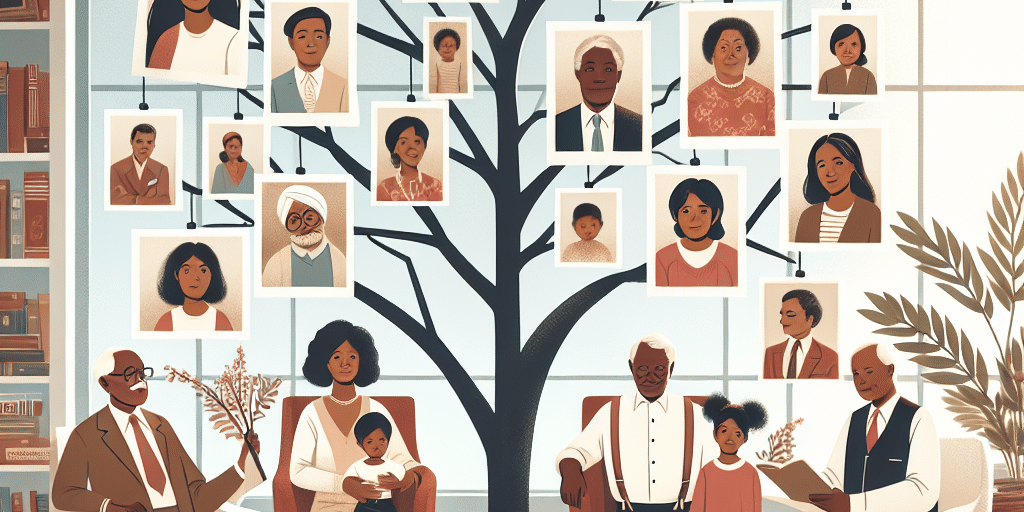Title: Preserving Family Heritage: Teaching the Next Generation About Legacy and Values
In an increasingly globalized world, where cultures intermingle and change rapidly, the importance of family heritage and values cannot be overstated. Preserving one’s cultural identity, traditions, and family legacies provides a sense of belonging and helps shape the moral compass of future generations. As parents, guardians, or caretakers, it is our responsibility to impart these invaluable lessons to the next generation, ensuring that they understand their roots while navigating the complexities of modern life. Below are some effective strategies for teaching children about family heritage and values.
1. Storytelling: The Heart of Heritage
Stories are a powerful medium for transmitting values and culture. Gather your family and share tales from your ancestry—stories of triumph and struggle, of love and loss. This not only makes history relatable but also emphasizes the values that guided your family through various challenges. Encourage children to ask questions, express their curiosity, and connect these stories to their own lives. Use various forms of storytelling—books, oral traditions, videos, or even family trees—to evoke interest and engagement.
2. Engagement with Cultural Practices
Involve children in cultural practices that reflect your family heritage. Whether it’s preparing traditional meals, celebrating cultural festivals, or participating in religious ceremonies, these activities create shared experiences that instill pride in one’s identity. Use these opportunities to explain the significance behind each tradition, helping them to grasp the values and lessons that come with them. By actively participating, children can embody these values rather than simply learn about them.
3. Creating a Family Legacy Project
A tangible way to preserve family heritage is through a family legacy project. This can include creating a family album, documenting recipes, or collecting artifacts that represent your family’s journey through time. Engage children in the process by having them contribute their perspectives through drawings, writings, or recordings. This collaborative effort not only reinforces their understanding of family history but also allows them to nurture creativity and critical thinking.
4. Open Discussions About Values
Take time to discuss the core values that your family holds dear—respect, kindness, perseverance, generosity, etc. Use real-life examples and scenarios to illustrate how these values are manifested in daily life. Encourage children to share their thoughts and feelings about these values. Creating an open dialogue fosters an environment where they feel comfortable asking questions and forming their own understanding of what these values mean to them.
5. Engaging with Extended Family
Family heritage is not just confined to immediate relatives; it encompasses a broader community. Organize gatherings with extended family members, where stories and experiences can be freely shared. These interactions can enhance children’s sense of belonging and demonstrate the strength of family ties. Encourage them to seek relationships with grandparents or elders who can provide firsthand accounts of family history and lessons.
6. Preserving Language and Customs
Language is often the carrier of culture, encapsulating nuances and idioms that might be lost in translation. If your family speaks a different language or dialect, incorporate it into your daily interactions. Encourage children to learn and practice it, ensuring that they appreciate its significance. Additionally, customs and rituals could reflect deeper meanings and values that enrich their understanding of your family’s heritage.
7. Volunteering and Community Involvement
Teach children the importance of giving back to the community, an essential value in many cultures. Engaging in charitable activities not only exemplifies family values but also connects children to their community and the world around them. Encourage them to choose causes that resonate with your family’s values, fostering empathy and social responsibility.
Conclusion: A Legacy of Love and Understanding
Preserving family heritage is not merely about maintaining traditions; it’s about instilling values that will enable future generations to navigate life with purpose and integrity. By actively engaging children in the exploration of their heritage, you provide them with a sense of identity and an understanding of the principles that have shaped their families for generations. Through storytelling, shared experiences, and open discussions, we can impart a legacy of love, respect, and cultural pride that will endure and flourish in the hearts of our children. In this way, we not only preserve our past but help shape a brighter future for the generations to come.











